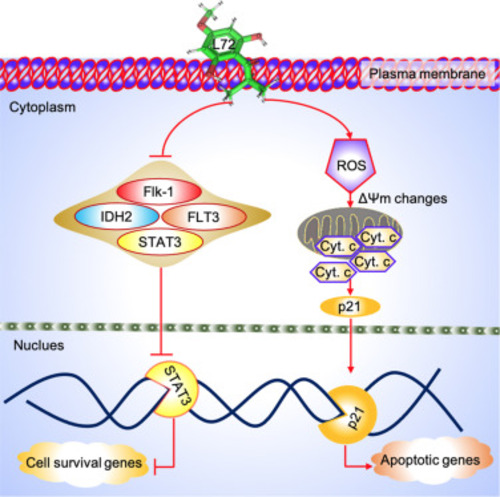Fig. 7
- ID
- ZDB-FIG-221025-8
- Publication
- Hu et al., 2021 - A natural acylphloroglucinol triggered antiproliferative possessions in HEL cells by impeding STAT3 signaling and attenuating angiogenesis in transgenic zebrafish model
- Other Figures
- All Figure Page
- Back to All Figure Page
|
Fig. 7. Molecular action of L72, both invitro, and invivo. The L72 after entering the plasma membrane causes inhibition of FLT3, IDH2, STAT3, and Flk-1. Meanwhile, it generates reactive oxygen species (ROS) and mitochondrial membrane damage-causing alterations in MMP. This results in the release of cytochrome c and activation of p21. This activation eventually triggers apoptotic gene transcription in the nucleus, causing cellular apoptosis. The fore-mentioned inhibition of STAT3 causes the lack of transcription of cell survival genes. Moreover, inhibition of Flk-1 promotes anti-angiogenesis, inhibiting the formation of new cells or vasculatures. All these events favored cellular apoptosis, after L72 administration. |

